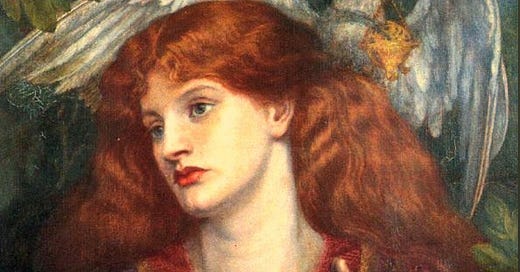As the resident brat of the beauty industry, I have to say it: Black Friday is a scam. It encourages the kind of consumerism that screws the skin, the psyche, and the entire species. (And, uh, literally kills people. Bleak!!) It reinforces the idea that products are pathways to self-worth, self-actualization, and self-love. It’s a Trojan horse, a trick mirror: Corporations market Black Friday as a little treat for you when it’s an extra-large treat for them. (I mean, duh. Companies typically don’t have motivations beyond “make more money” — which, incidentally, involves you giving them yours.)
As Aja Barber writes in Consumed: The Need for Collective Change: Colonialism, Climate Change, and Consumerism, “The term ‘black’ derives from accounting terms for finances. If your business is in the ‘red,’ you’re in debt. If you’re in the ‘black,’ that’s where you want to be.” High-volume sales, even at discounted prices, make for major profits.
And honestly? The discounts usually aren’t great. For many, Black Friday is more mind-fuckery than anything else: Lured in by the promise of 20 percent off a particular item, you find you can’t stop buying more, more, more — because it’s all on SALE!! and that sale will be over SOON!! — and end up spending money you didn’t want to spend on products you didn’t want to buy. You’re told you “saved,” but saved what? Not money. Certainly not the planet.
Maybe your soul?
Since the dawn of capitalism — a supposedly secular extension of “the Protestant work ethic” — the accumulation of capital has been messaged as a moral imperative. The idea that God smiles upon he who has the most stuff is baked into American consumer culture… and the same way you can’t remove an egg from a finished cake, you can’t remove the prosperity gospel from modern capitalism. “The particularly American fusion of capitalism and Christianity … has not only adapted to the mandates of the market, but has sanctified them,” Regina Munch writes in Capitalism As Religion: How Money Became God. “Rather than critiquing wealth, power, and pursuit of profit, these qualities became the stuff of divinity.”
A good person became a good consumer.
The beauty industry builds on this concept. Here, a good person is a good consumer with good skin (which, of course, you have to buy). It upholds both beauty and buying as forms of goodness by employing religious language and imagery: “miracle” ingredients, “Holy Grail” products, skin “saviors”… This morning I received an email from a skincare brand promoting its “Just Like Heaven” Black Friday sale with the code “CONGREGATION20.” It doesn’t take much digging to unearth the (perhaps unconscious) implications of aesthetics and consumerism as ethical ideals there.
Under capitalism, consuming is work — it’s our duty. Consuming is rest — it’s our self-care. Consuming is spiritual — it’s our religion. Consuming is even a beauty standard. Just look to women we put on pedestals: Kylie Jenner and her lips. Nicole Kidman and her forehead. The Real Housewives and their… everything. These features are objectively off-putting and yet, they’re elevated as the aesthetic standard. Why? Because, I think, they imply effort. They say, “I sacrifice my time, money, thoughts, and energy to the maintenance of my physical appearance via purchasable products and procedures, like a ‘good’ woman should.” They say, “I know I must reject my own free features and ‘invest’ in new ones in order to earn cultural capital.” They promote the West’s colonialist, capitalist ideals and present them as beauty ideals. They influence the rest of us to do the same. In return, they’re rewarded by the system — a system that needs us to buy, buy, buy if it’s going to survive.
Anyway, can you see why I don’t really want to participate in the nationwide celebration of consumerism that is Black Friday???*
Instead, I’m turning Black Friday into Don’t Buy Day.
First thing Friday morning, I’ll be unlocking every single edition of The Don’t Buy List — all 18 issues — and making them FREE to all subscribers for the holiday weekend.
(If you don’t know what I’m talking about, The Don’t Buy List is the main perk for The Unpublishable’s paying subscribers: It’s a bi-weekly roundup of private rants and product-free content from across the internet, curated to broaden your understanding of the beauty industry and help us all break free from beauty standards. Like this and this and this.)
And while I don’t endorse Black Friday skincare sales, I do think you deserve some discounted Truth Serum… so I’ll be marking down monthly and yearly subscriptions to The Unpublishable this weekend, too. All you have to do is use the code BUYINGMAKESYOUBEAUTIFUL at checkout!! (Juuust kidding. About the code, not the mark-down. That’s still coming.)
Stay tuned for an email Friday morning with links.





Welp, I think you covered all the bases. Plus, I love a good sale!
I deleted my instagram app and subscribed to this instead, woo-hoo!